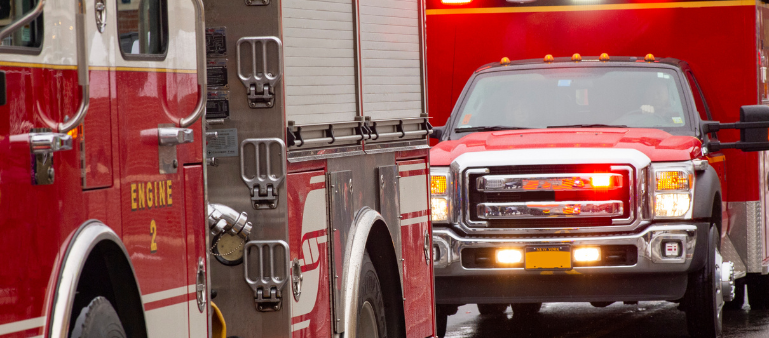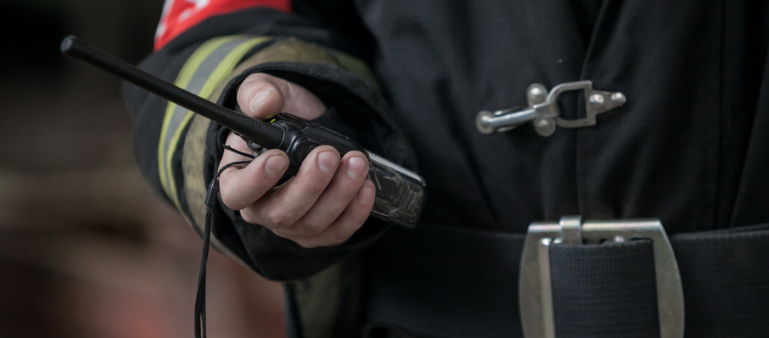Blog







First responders—paramedics, police officers, firefighters, emergency dispatchers, correctional officers—live at the intersection of danger, urgency, and emotional intensity every day. Their work demands courage, split-second decision-making, and resilience in the face of unimaginable stressors. Yet too often, the emotional and psychological toll of this work remains invisible—both to the public and to the first responders themselves. The truth is: protecting mental health is as essential as protecting physical health. Specialized therapy for first responders plays a critical role in ensuring that the heroes who care for others also receive the care they need. And this care must be different.
First responder trauma therapy is not just traditional counseling repackaged—it’s a unique, research-informed approach tailored to the complex realities of high-stress, high-risk professions. In this article, we’ll explore how therapy for first responders differs from general therapy, why it matters so profoundly, and what kinds of specialized support make the greatest impact.
First responders experience trauma in ways that differ fundamentally from the general public:
Repeated exposure to trauma:
Unlike civilians who may experience a few traumatic events in their lifetime, first responders witness death, violence, accidents, and human suffering regularly.
Cumulative stress and “critical incidents”:
It’s not just single traumatic events that take a toll—it’s the accumulation of stress from many smaller incidents over time.
Moral injury:
First responders often face situations where there is no “right” answer, leading to guilt, shame, or inner conflict (e.g., being unable to save a life despite heroic efforts).
Cultural barriers to seeking help:
The “tough it out” culture prevalent among emergency personnel can discourage vulnerability, making it harder for first responders to seek traditional therapy.
Impact on personal relationships:
Emotional suppression, shift work, and occupational stress spill over into home life, straining marriages, parenting, and friendships.
A first responder’s experience of trauma isn’t just occasional; it’s woven into the fabric of their work. That’s why specialized therapy models are critical—not optional.

Effective therapy for first responders is grounded in a deep understanding of their unique professional culture. Therapists at Momenta Clinic recognize:
The critical importance of confidentiality and trust.
The persistent stigma surrounding mental health help-seeking in emergency services.
Coping mechanisms like dark humor or emotional distancing, which serve as survival tools in high-stress environments.
The challenge of vulnerability in roles that demand constant readiness and strength.
By building rapport without judgment, our therapists create a safe space where first responders can lower their defenses without fearing professional consequences or personal shame.
First responders often face not just isolated traumatic events but a buildup of stressors over time. Our therapeutic approach addresses:
Processing years of unaddressed traumatic memories.
Identifying patterns of avoidance, emotional numbing, or hypervigilance.
Helping individuals reconnect with emotional parts of themselves they may have suppressed for survival.
At the Momenta Clinic, we utilize evidence-based therapies such as:
Prolonged Exposure (PE): A first-line treatment for PTSD that involves repeated, detailed imagining of the trauma (imaginal exposure) and confrontation with situations, places, and people that serve as trauma reminders (in vivo exposure).
Cognitive Behavioral Therapy (CBT): Focuses on identifying and challenging unhelpful thought patterns and behaviors, developing coping strategies, while reducing maladaptive behaviours.
Dialectical Behavior Therapy (DBT): Combines standard CBT techniques with concepts of mindfulness, distress tolerance, emotion regulation, and interpersonal effectiveness, which are particularly beneficial for managing the intense emotions often experienced by first responders.
Understanding the unpredictable schedules and high-alert nature of first responder roles, we offer:
Flexible appointment times, including evenings and weekends or helping first responders with varying schedules.
Brief, solution-focused interventions during particularly high-stress periods.
Early first responder support so that work on prevention and developing healthy habits. Establishing early contact can also help in case support is needed later in one’s career.
Encouragement of peer connections and peer support alongside individual therapy when it appears like it could be helpful.
Our therapists are prepared to provide fast support following critical incidents. We know that for those showing early signs of trauma, timely intervention can make the difference between manageable stress and long-term psychological injury.
Specialized therapy for first responders doesn’t rely on generic talk therapy alone. Research has identified several therapeutic approaches that are especially effective for first responder PTSD treatment, cumulative trauma, and emotional burnout.
Therapy for first responders must reflect the unique culture, exposures, and demands of frontline work. Unlike generic trauma therapy, effective treatment must acknowledge the accumulation of high-stress events. Factors like occupational identity and the potential impact on trust, control, and meaning-making are all important factors to consider.
Key evidence-based approaches for first responders include:
1. Prolonged Exposure Therapy (PE)
Prolonged Exposure is a gold-standard treatment for PTSD endorsed by the VA and APA. It helps first responders safely confront and process avoided trauma-related memories and cues. Over time, these exposures reduce emotional distress and avoidance behaviors. PE is particularly effective for operational stress injuries where intrusive memories and hypervigilance are present.
2. Trauma-Focused Cognitive Behavioral Therapy (TF-CBT)
TF-CBT and other cognitive-behavioral approaches help restructure the negative beliefs that can form after critical incidents—such as “I should have done more” or “I’m no longer safe.” These therapies also incorporate exposure, cognitive restructuring, and emotional regulation. TF-CBT targets symptoms like insomnia, anger, and emotional numbing common in police, paramedic, and firefighter populations.
3. Trauma Processing Within a Cultural Context
For first responders, therapy must make room for processing trauma within the context of duty, loyalty, and occupational culture. This includes exploring moral injuries (e.g., witnessing suffering or making difficult decisions under pressure), organizational betrayal, and survivor guilt. Studies suggest that therapists who understand the language, values, and pressures of frontline roles are more likely to build trust and facilitate engagement.
4. Peer Support and Early Intervention
Structured peer support—delivered by trained colleagues—can provide culturally attuned emotional support immediately following traumatic events. Peer support often functions as a critical bridge to professional care. Additionally, it can also help improve attitudes toward help-seeking and reducing stigma in male-dominated first responder environments.

When first responders access mental health services specifically designed for their unique needs, the outcomes are powerful:
Reduced PTSD symptoms: Targeted interventions significantly decrease intrusive memories, hypervigilance, and avoidance behaviors.
Improved emotional regulation: Therapy strengthens skills for managing anger, grief, sadness, and frustration more effectively.
Enhanced relationships: By addressing emotional numbing and communication challenges, therapy often repairs and strengthens relationships with family, friends, and coworkers.
Decreased burnout: Specialized support replenishes emotional reserves, reducing the risk of compassion fatigue and professional exhaustion.
Increased career longevity: Early intervention and ongoing support can extend a first responder’s healthy, satisfying career in their chosen field.
Most importantly, specialized therapy helps first responders rediscover a sense of meaning, hope, and emotional resilience. These are core ingredients for thriving both personally and professionally.
Despite growing awareness, stigma about mental health remains a significant barrier for many first responders. Internalized beliefs like “real heroes don’t need help” or “weakness gets people hurt” are common. They prevent countless individuals from seeking the therapy they deserve.
Here’s how we can help reduce stigma and normalize seeking therapy as a first responder:
Normalize vulnerability: Leadership, supervisors, and training programs must emphasize that strength includes knowing when to seek help—not just powering through silently.
Share success stories: Some first responders who have benefited from therapy have chosen to share their experiences with peers (when they feel safe doing so) about how mental health support enhanced—not hindered—their lives and careers.
Promote confidentiality: Departments and organizations must ensure mental health services for first responders maintain strict confidentiality to build trust.
Offer proactive education: Mental health literacy programs tailored to first responder realities can demystify therapy and highlight early warning signs of burnout and trauma.
Research Insight:
Organizations that actively promote mental health support—through leadership modeling, peer programs, and confidential access—see higher rates of help-seeking behavior among first responders

The emotional wounds first responders carry are often invisible—but they are real, significant, and deserving of expert care. Seeking therapy isn’t about weakness, failure, or fragility. It’s about honoring your humanity—the same humanity that makes you capable of compassion, bravery, and extraordinary service to others.
Specialized therapy for first responders offers a lifeline:
1. A place to heal.
2. A space to rebuild resilience.
3. A way forward toward living fully, not just surviving.
If you or someone you love serves as a first responder, know this:
There is no shame in seeking support.
There is only strength in protecting your own well-being, just as fiercely as you protect the lives of others.
Help is here—and healing is possible.
At the Momenta Clinic, we approach therapy for first responders with deep respect for the job and the people behind the uniform. Our goal isn’t to pathologize normal responses to extraordinary stress—it’s to offer a space where strength and struggle can coexist without judgment. Whether you’re feeling the cumulative weight of years on the front line or navigating a recent incident that hit harder than expected, our team is here to support your recovery in a way that honors your experience and aligns with your values.
Finally, whether you are a first responder who just entered the field or towards the end of your career, whether you are dealing with life stress or trauma from a work injury, we are here to help and walk with you on your journey. With offices in Toronto, Brampton and Vaughan, we provide in-person psychological and therapy services or we can see you virtually if you live anywhere in Ontario. We are a WSIB-approved provider. Contact us to book an appointment today.